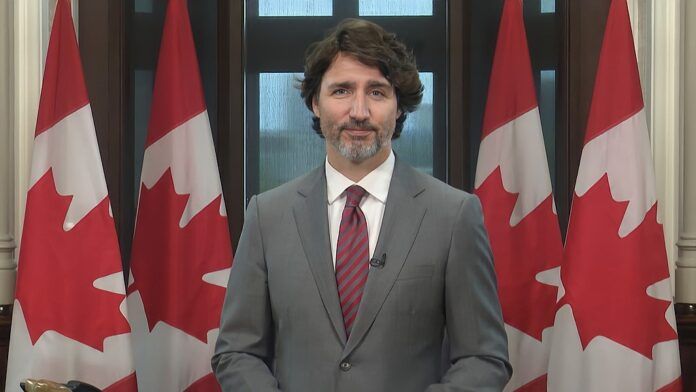Federal government unveils low-cost loan and grant program to create new childcare spaces nationwide
The federal government of Canada has taken a significant step to address the pressing demand for childcare spaces by announcing a comprehensive expansion program. Spearheaded by Prime Minister Justin Trudeau, the initiative will allocate over $1 billion in low-cost loans coupled with $60 million in non-repayable grants aimed at public and non-profit childcare providers. This ambitious move, part of the upcoming federal budget, is designed to significantly increase the availability of affordable childcare services across the country.
During an announcement in Surrey, B.C., Trudeau underscored the importance of supporting young mothers, particularly millennials, who have faced numerous economic pressures over the years. “You’ve grown up with so many pressures in this economy: the 2008 recession, COVID, climate change. You’re a huge part of the economy. And we want to make sure that everyone, especially moms raising kids, has the best chance to succeed and thrive,” he stated.
This announcement builds on the federal Canada-Wide Early Learning and Child Care agreement, a five-year, $30-billion plan launched in April 2021. The agreement, which has seen participation from all territories and provinces, aims to reduce the average cost of child care to $10 a day by 2026 for children six and under. While the program has successfully cut fees by at least 50 percent nationwide, the creation of 250,000 new childcare spaces is lagging, leaving many parents frustrated due to lack of access.
Statistics Canada reveals that the challenge of finding child care is growing, with 49 percent of parents using child care in 2022 reporting difficulties in securing services, up from 36 percent in 2019. Additionally, 26 percent of parents of children aged zero to five not in childcare were on a waitlist last year, an increase from 19 percent in the previous year.
The newly announced loan program aims to alleviate these challenges by facilitating the expansion of non-profit operators, who often struggle to secure financing for new projects. Morna Ballantyne, executive director of Child Care Now, a national advocacy organization, praised the initiative, highlighting the difficulty not-for-profit providers face in accessing necessary capital.
Moreover, the government is addressing workforce issues critical to the sector’s growth by allocating $48 million over four years for student loan forgiveness for early childhood educators in rural and remote communities. An additional $10 million over two years is designated for training more educators, ensuring that the increase in childcare spaces is matched with qualified personnel to staff them.
This strategic investment in childcare infrastructure and workforce development is a pivotal move towards creating a more accessible, affordable, and quality childcare system in Canada, marking a significant advancement in the country’s commitment to supporting families and children.
